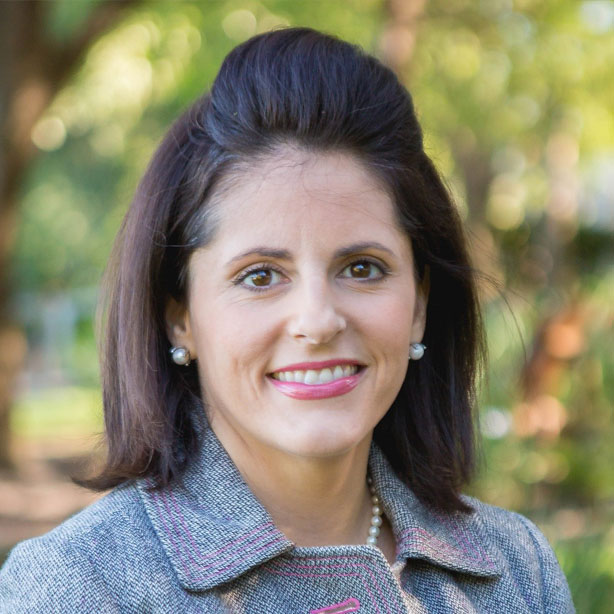The Orlando Law Group
Trust Administration Attorney in Orlando, FL
Planning for your assets after you pass away can be a daunting task for most people. Even if you have already prepared a last will and testament, you may wonder whether your family could benefit from creating a trust to provide greater control and tax benefits. To do so, it helps to speak with an Orlando estate planning attorney as soon as you can.
There are substantial ramifications associated with using trusts to manage your assets both before and after you die. Understanding which options are best for you requires the services of a highly skilled Orlando trust administration attorney. The Orlando Law Group is here to provide experienced guidance to ensure your legacy lives on.

What is a trust?
A trust is a legal entity representing a relationship where one person holds title to property and other assets for the benefit of others. While a will can be useful for handing down assets, it also leaves everything you own open to the complications and scrutiny of the probate process. Family disagreements and creditor claims can result as an estate moves through probate court, and in some states, closing an estate can take as much as one year.
What exactly does a trust do?
Trusts help protect your assets and distribute them within clearly stated terms that all beneficiaries must agree to when they sign. There are no questions about who gets what, and your estate can often eliminate substantial tax burdens. Everything is kept private, so there is no public record of the distributions, although the trustee must make an annual accounting to the beneficiaries.
Other ways trusts are useful:
- They allow you to assign legal responsibilities to the trust while keeping the benefit of the assets.
- Trusts can be used to manage assets for someone unable to tend to their affairs (children or mentally disabled adults).
- Their terms are privately retained among members, and they do not become public record.
- They speed the closing of an estate because assets in the trust do not go through probate.
Trusts can also protect your assets from the hands of creditors. Since the trust terms are private and distributions are made by going through the courts, the trustee ensures your beneficiaries receive their shares.
Who are the main parties involved in trust administration?
What is trust administration, and who is required for it? Trust administration can be very simple, or it can involve multiple individuals, depending on the complexity of the assets to be placed in the trust. Typically, the following parties are part of creating and administering a trust:
Testator
The testator is the individual who creates the last will, which outlines their wishes for after their death about their funeral, burial, and distribution of their assets. They may wish to leave items such as jewelry or family heirlooms to their beneficiaries.
While the testator can include any instructions they desire, it’s important to remember that property distribution in a will is subject to state laws and can be contested in probate court.
Trustmaker
The trustmaker, also called a settlor or grantor, is the individual who creates the trust.
Executor
The executor is the person who is chosen to fulfill the wishes expressed in the last will. This is sometimes the same person as the trustee who administers the trust. If the deceased did not designate an executor, the state where they lived may choose the executor.
Trustee
The trustee is the person who administers the trust on behalf of the grantor or trustmaker.
Beneficiary
Beneficiaries are those individuals or businesses that receive assets, dividends, or accounts as distributions according to the terms of the trust. They are often the same recipients as the deceased’s heirs, though not always.
Heir
Heirs are those individuals who are entitled to receive property and other assets from the deceased, either through the last will or according to the laws of the state where the person died. If there is no will, the state’s intestate laws will take effect.

Why do I need an attorney to administer a trust?
Estate planning can be confusing and overwhelming. Unless you have extensive experience in legal and financial matters in Florida, you will likely benefit a great deal from working closely with Orlando trust administration attorneys.
Our Orlando trust administration lawyers can guide you in your duties as trustee. We can educate you about applicable laws, filing requirements, and any deadlines affecting the trust.
They can connect you with financial experts who will advise you on how to maximize the value of the trust.
Trustee responsibilities and the trust administration process
When the trustmaker passes away, the trust is created as an individual legal entity with the trustee as administrator. They have many critical responsibilities to initiate the trust and begin managing its assets.
Giving appropriate notice
Under the Florida Trust Code (Sections 736.0101-736.1301), the trustee must provide a formal notice to the beneficiaries that the trust has been created and that they are involved. The trustee files a Notice of Trust with the county court for the jurisdiction where the grantor died and a Notice to Trust Beneficiaries.
This second document informs the beneficiaries about their right to account information and other trust materials. The trustee must give notice within 60 days of accepting their duties.
Paying final expenses
Trustees will be responsible for using trust assets to pay for the decedent’s final expenses, including burial and funeral costs. They will use funds specifically set aside in the trust to pay these bills, along with any costs of setting up the trust.
Setting up the trust
Setting up the trust requires four main actions.
Deposit the original will with the probate court
The trustee must locate and present the decedent’s will to the county probate court within ten days of the death. Where the grantor died will determine which court is appropriate.
Order death certificates
Death certificates are obtained from the institution handling the final arrangements, such as a funeral home. They are used for securing payments from insurance policies and ending liabilities.
Review the terms of the trust
The trustee will review the conditions and fulfill the decedent’s wishes within the terms of the trust. This is when working with a trust administration attorney in Orlando can be extremely valuable.
Get a tax number for the trust
To pay taxes, the trustee will need to request an Employer Identification Number (EIN) from the IRS. They can then manage the trust as a business entity and conduct its financial business.
Gathering and protecting trust assets
The trustee will take control of all the trust’s assets, including compelling any former trustees to release control. The trustee assumes a fiduciary duty to maintain, protect, and invest the assets impartially and prudently for the good of the beneficiaries and the trust itself.
Protecting assets involves paying outstanding taxes, bills, and mortgages. The trustee will also file tax returns for the trust and provide an annual accounting to beneficiaries to demonstrate their good faith management.
Overseeing transfer of non-trust assets
Not everything a decedent leaves to their heirs will be part of the trust. The trustee will be charged with ensuring all property and money is successfully transferred to the intended recipients, even when it is not part of the trust.
Trustees should oversee the transfer of items such as the following.
Jointly-owned property
When an asset is owned jointly with another person with the right of survivorship, that property automatically transfers to the surviving owner without the need for probate.
Pay-on-Death and Transfer-on-Death accounts
Financial accounts designated as pay-on-death or transfer-on-death will go directly to the designated beneficiaries.
Life insurance benefits
Life insurance proceeds will pass to the designated beneficiaries without probate.
Retirement accounts
Like life insurance policies, IRAs and 401(K) accounts are paid directly to their beneficiaries.
Resolving outstanding debts and liabilities
The trustee will identify all liabilities and claims against the estate that are part of the trust at the time of death. They will pay those that are legitimate and pay them, as well as any that arise as a result after the Notice of Trust publication.
Understanding when a claim is legitimate and when it is not can require experienced guidance from an Orlando trust administration attorney.
Distributing assets per the instructions
Some trusts call for full distribution of all assets within a short period. Others are created to provide funds and investment growth over many decades to support the beneficiaries. Regardless of the terms, the trustee must make distributions at the intervals dictated by the trust conditions.
They will continue to do this until the trust terms are satisfied or until they hand over duties to a new trustee.
How can I make sure I’m doing what I need to do as a trustee?
Administering a trust is very complicated, just like any part of executing an estate. According to Florida estate planning law, trustees must “administer the trust in good faith,” meeting the requirements of both the trust and the law. Trusts are intended to avoid probate and excessive tax liabilities for the beneficiaries, but they require significant effort from the trustee.
Trustees are responsible for collecting and managing all the trust’s assets. They may need to initiate business succession plans, distribute personal assets, transfer funds among accounts, and convey titles for real estate and vehicles to their respective recipients. These actions involve contact with numerous government agencies and many hours of work.
Duty of impartiality
You will need to be able to follow all the trust’s terms impartially, distributing assets to the beneficiaries equally.
Duty to diversify
You will be responsible for diversifying and growing the trust’s investments for the best interests of the beneficiaries. If you choose to delegate these decisions to an investment firm, you will need to select a trustworthy institution.
Duty of good faith
In situations that are not covered under the trust’s terms, you will need to make decisions in good faith to serve the best interests of the trust and its beneficiaries.
How can an Orlando trust administration attorney help me?
If you have been tasked with administering a trust in Florida, you are facing a tremendous job for which you may or may not be fully prepared. With the help of an Orlando trust administration attorney from our firm at your side, you do not have to worry about wondering what a trust administrator is or what they do.
The Orlando Law Group offers integrity, skill, and years of experience helping families with their estate planning and trust administration needs. We take time to listen to your situation, understand your goals, and support you throughout your duties as trustee. We can connect you with financial, tax, and other experts to help you successfully manage all aspects of administration.
Contact us by calling (407) 512-4394 or by using our online form to schedule a free consultation today.
Related articles for further reading
Discuss your case with us
or call us
(407) 512-4394



 Jeffrey W. Smith
Attorney
Jeffrey W. Smith
Attorney

 Dan Sanders
Attorney
Dan Sanders
Attorney
 Wendy Hernandez O’Donnell
Attorney
Wendy Hernandez O’Donnell
Attorney









